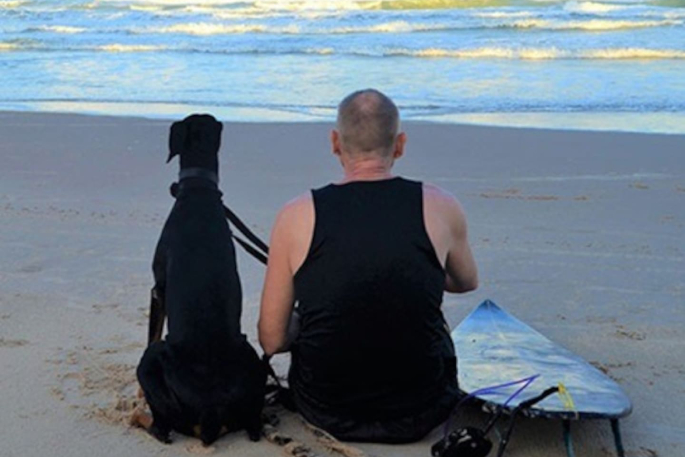A Bay of Plenty man who faced a “bombshell” prostate cancer diagnosis has spoken out about the mental strain of “stigmatised” treatment side-effects incontinence and erectile dysfunction.
It comes as Prostate Cancer research results released today show more than 90% of men surveyed had erectile dysfunction following prostate cancer treatment, with 80% reporting urinary incontinence.
Mike, whose surname the Bay of Plenty Times agreed not to publish, developed the impacts after having a prostatectomy – prostate removal surgery.
“Before, you had no limitations ... and all of a sudden, there’s a handbrake on.”
Mike, whose surname the Bay of Plenty Times agreed not to publish, developed the impacts after having a prostatectomy – prostate removal surgery.
“Before, you had no limitations ... and all of a sudden, there’s a handbrake on.”
‘I feel as though I can manage’
Mike told the Bay of Plenty Times the diagnosis was only the first “bombshell”.
“The next bombshell was the incontinence thing and of course, the association with wearing pads was a bit weird.”
Mike said he used pads for about two or three months after having a prostatectomy.
He did physiotherapy to help prevent and manage his incontinence by strengthening his pelvic floor muscles.
Mike told the Bay of Plenty Times the diagnosis was only the first “bombshell”.
“The next bombshell was the incontinence thing and of course, the association with wearing pads was a bit weird.”
Mike said he used pads for about two or three months after having a prostatectomy.
He did physiotherapy to help prevent and manage his incontinence by strengthening his pelvic floor muscles.
Most patients have side effects after treatment: survey
A Prostate Cancer Foundation press release said it conducted an online survey of 123 New Zealand men diagnosed and treated for prostate cancer aged 45 and older between October 8 and 21.
This found sexual function was the most compromised patient outcome associated with prostate cancer treatment.
Thirty-eight per cent of patients reported moderate to substantial “bother” with sexual function compared to bother with urinary function (10%) and bowel function (5%).
It said 92.7% of men experienced erectile dysfunction following treatment, with 69.1% experiencing the “highly stigmatised” condition at least once per week.

A free, public information evening for prostate cancer survivors and their families will be held in Tauranga tonight, covering the potential side effects of treatment.
Almost half of respondents said living with erectile dysfunction had severely affected their sex drive while 40% had experienced severe loss of intimacy with their partner - the same proportion who felt inadequately educated about the possibility of developing the side effect.
For the third of respondents who had sought treatment for erectile dysfunction, their main motivations were wanting a better sex life, improved quality of life, and a desire to overcome any impact of prostate cancer.
Nearly 80% of respondents experienced urinary incontinence after having treatment.
One in four described their symptoms as “severe” and had constant leaks and regularly used pads.
The survey found 27.6% were yet to consider treatment options for incontinence, 29.6% were unaware of available treatment options (surgery, medicine, physiotherapy), and 44.9% were yet to seek any form of treatment.
Public information evenings
The foundation’s “prostate cancer - life after treatment” roadshow will tour Tauranga, Palmerston North, Auckland, Dunedin, Christchurch, and Wellington between November 5 and 14.
Each event would canvass the potential side effects of treatment, and treatment options available to help manage and aid recovery.
Foundation chief executive Peter Dickens said its survey aimed to glean insights from patients treated for prostate cancer on the physical, mental, emotional, and relationship challenges they faced.
“Numerous prostate cancer survivors experience distressing sexual and urinary difficulties, including erectile dysfunction and urinary incontinence, following surgery, which compromise their mental health and wellbeing, and intimate relationships.”
Dickens encouraged men and their families to attend the information evenings to learn about management and treatment options with leading experts in the field.
The information evening in Tauranga will be held tonight at the Tauranga Citizens Club from 7pm to 8.30pm.
Those interested can register their attendance online.
Megan Wilson is a health and general news reporter for the Bay of Plenty Times and Rotorua Daily Post. She has been a journalist since 2021.



0 comments
Leave a Comment
You must be logged in to make a comment.